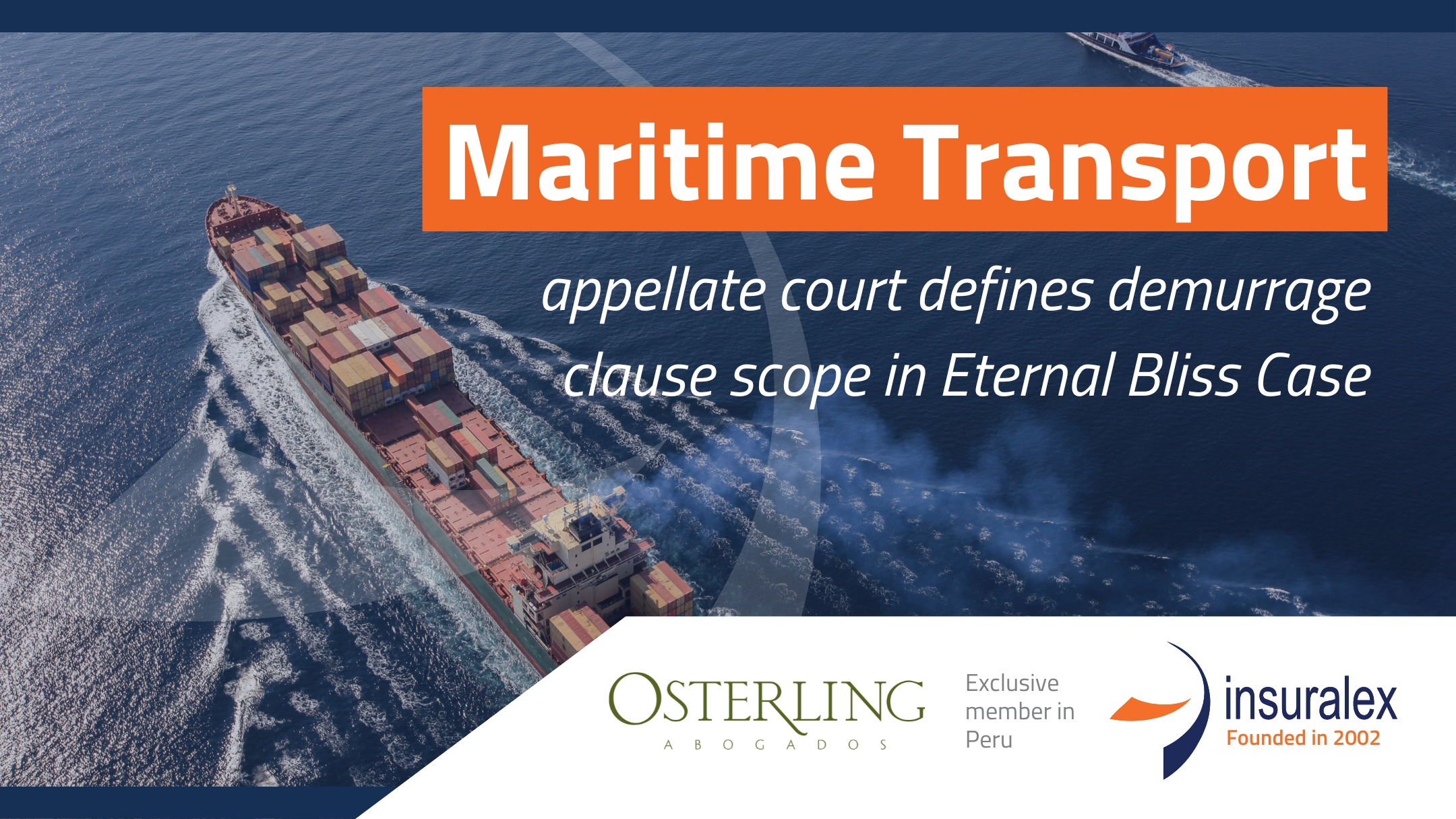
Informative Memo – Shipping
K Line Pte Limitedv and Priminds Shipping (HK) Co. Limited have reached a settlement in this case; therefore, it will no longer be heard by the Supreme Court. In that sense, the judgment issued by the Court of Appeal is the precedent to be followed in these cases.
As is public knowledge, on April 21, 2023, the Court of Appeal of England (hereinafter, the “Court of Appeal”) issued its judgment on Case No. A4/2021/0009 & A4/2021/0010 between K Line Pte Limited (hereinafter, “K Line”) and Priminds Shipping (HK) Co. Limited (hereinafter “Priminds”).
The main discussion of this case concerns the scope of the “Demurrage” clause, which is usually incorporated in the voyage charter. Also, the Court of Appeal indicated, for this case, whether the “demurrage” clause covered all damages caused by the delay of the charterer of the vessel in unloading or loading the goods at the designated port.
Background:
In 2014, K Line contracted Primids to transport various cargoes of bulk soybeans from South American ports to Asia. One of the voyages consisted of the carriage of 70,133 tons of soybeans (hereinafter, the “Cargo”) from the port of Tubarao (Brazil) to the port of Longkou (China). The Cargo would be shipped by the vessel Eternal Bliss (hereinafter, the “Vessel”).
The Vessel arrived at the port of destination on July 29, 2015. However, due to port congestion and lack of storage space on ashore, the Cargo remained on board the Vessel, which was anchored for 31 days at the port. Subsequently, at the time of unloading operations, it was found that the Cargo showed several damages, such as mold and caking, which made it impossible to be commercialized.
Under this scenario, the receiver of the Cargo initiated a claim process with K Line, who had to pay the sum of US$ 1.1 million to the receiver of the Cargo for the damages caused to it. Subsequently, K Line sued Primids requesting damages for the damages caused to the Cargo, since the vessel’s charterer did not unload the goods within the agreed time (Laytime).
In order to determine the scope of the demurrage clause, the parties requested the Commercial Court to issue an award pursuant to section 45 of the Arbitration Act 1996.
I. Legal Proceedings:
The Commercial Court ruled in favor of K Line, ordering Primids to pay compensation for the damages caused to the Cargo, on the grounds that the “demurrage” clause serves to liquidate loss of earnings resulting from delay to the vessel through failure to complete loading or discharging within the laytime allowed. Furthermore, the Commercial Court decided not to follow the decision of the English Court in the “The Bonde” case (The Bonde [1991] 1 Lloyd’s Rep 136).
Primdis appealed the Commercial Court’s decision to the Court of Appeal, questioning the nature and scope of the demurrage clause.
As noted above, the Court of Appeal focused the analysis on determining the meaning of the word “demurrage” as such and its understanding by shipping professionals.
The Court of Appeal concluded that, in the absence of any contrary indication, the “Demurrage” liquidates the whole of the damages arising from a charterer’s breach of charter in failing to complete cargo operations within the laytime and not merely some of them. Consequently, if a shipowner intends to recover damages, in addition to the “demurrage” arising from delay, it must prove a breach of a separate obligation and that the parties to the charterparty have so agreed.
In that sense, unless the parties have agreed otherwise, “demurrage” quantifies the value of the owner’s loss of use of the vessel in respect of the vessel’s delay, after the expiration of laytime; and does not apply to a different and/or distinct “type of loss or damage”.
For further information contact us:


Omar Córdova C. | Partner Fiorella Bustamante Z. | Partner



